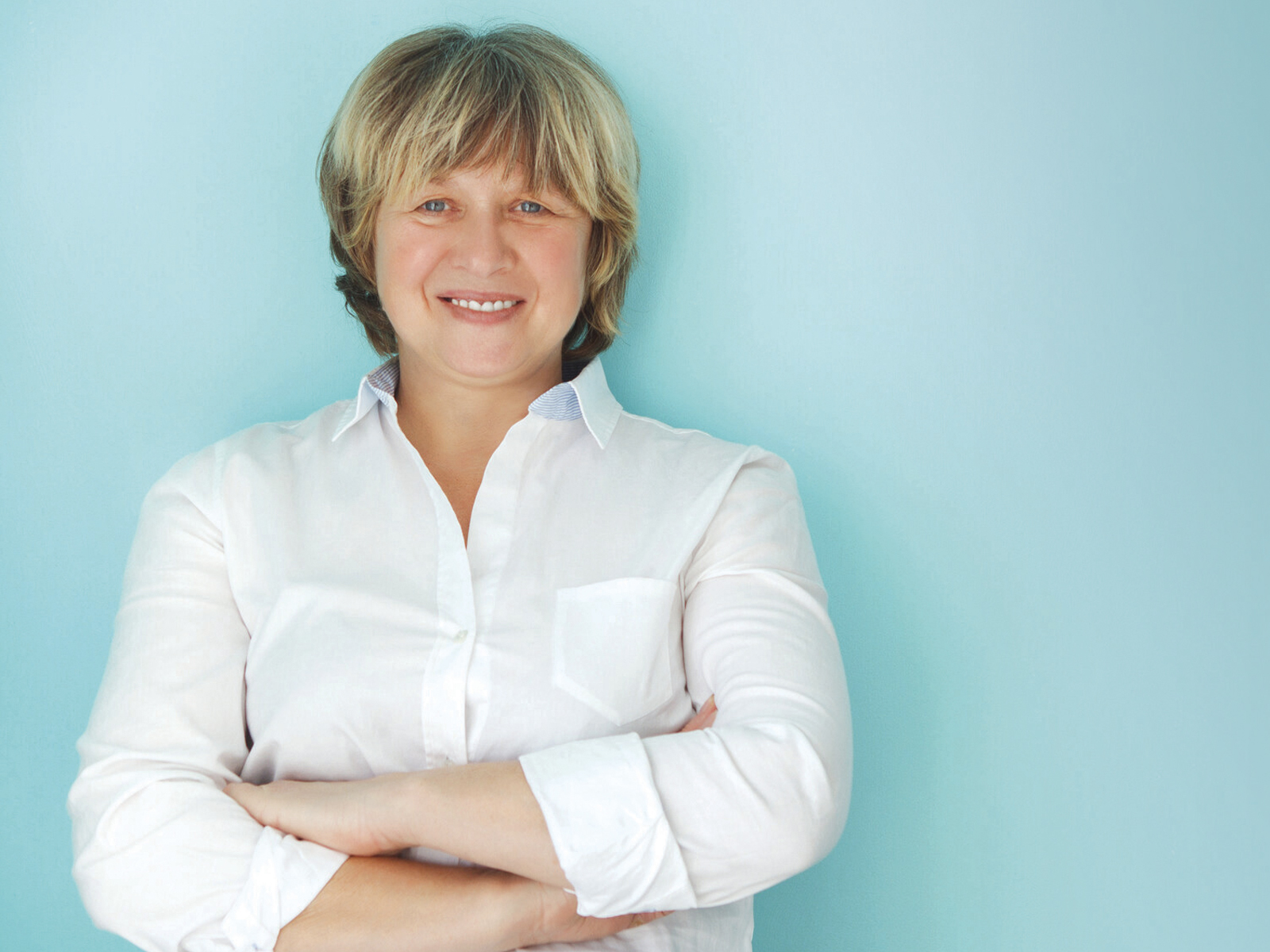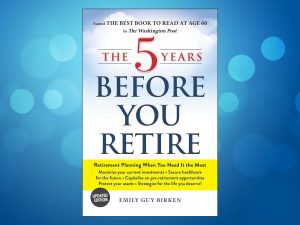A caregivers guide to physical and mental wellbeing
Caregiving can be demanding both physically and mentally. With so many balls to juggle, so many details to remember and so many things that can go wrong, it’s wise to try and keep both our bodies and minds in the best possible shape.
Staying in good physical condition is essential especially when our role requires lifting, housework, carrying groceries from the car and outdoor tasks like cutting the lawn or shoveling snow. Being physically active also helps us reduce stress, feel more energized and can improve our mood. It also helps us feel more confident and able to tackle whatever comes our way.
Preserving our cognitive abilities and mental health is also key. According to Dr. W.R. Klemm, author of Memory Power 101, deterioration of the brain usually sneaks up on us and, while we can’t turn back our biological clock, there are things we can do early on to reduce the rate of our mental decline.
Let’s meet two caregivers to see how they are proactively working to keep their memories and bodies working well, both for their own well-being and that of their loved ones.
Meet Harvey and Ruth
Harvey 77 has been taking care of his wife Ruth 76 who was diagnosed with Alzheimer’s disease three years ago. He worries about how they will cope if his begins to decline too. Who would take care of Ruth? Who would take care of him? Harvey knows that worrying does not solve his potential problem but he does know that working on staying healthy is important. Let’s see what he’s up to:
Clutter free and safe: Harvey has started to get help cleaning and maintaining their home. Now it’s tidier, safer and more organized. He’s now more aware of clutter, potential tripping hazards and of the need to track medication schedules and medical appointments. Being more organized with to-do lists and online reminders helps him reduce his stress level and compensates for his forgetfulness. Having only one place at home for car keys, glasses, scissors, and his wallet makes life a lot simpler. As the old expression goes: “A place for everything and everything in its place.”
Challenge yourself mentally: Together, Ruth and Harry are still willing to try new things. Ruth has taken up knitting and Harry has decided to re-kindle his interest in history by watching documentaries. Trying to learn new card games, testing different recipes and participating in church fundraising activities makes a difference to their interest and energy levels even for Ruth who, depending on the day or time of day, can be quite active.
Enjoying a healthy diet: A balanced diet is good for both mental and physical health. Harvey has now arranged for twice weekly grocery deliveries and fills the order with ingredients for meals that include fresh vegetables, leafy green salads, fruits and whole grains. Studies have also shown a memory benefit from eating foods rich with antioxidants, such as blueberries, spinach, raspberries and green tea. He is especially proud of his meal prep success with tasty fish and skinless chicken dishes.
Spend time with others, be social: Friends have realized that caregiving can somewhat lonely and isolating so they’ve recently started to make an effort to meet up with Harvey for coffee twice a week. Additionally, he’s joined a virtual caregiver support group for spouses. Being socially engaged has been shown to contribute to overall well-being and helps to ward off depression and anxiety. In fact, the WHO suggests that the risk of dementia is increased with fewer social contacts and low social participation.
Manage medical conditions: Harvey and Ruth meet regularly with their family doctor to monitor his high blood pressure, and diabetes and her dementia and high cholesterol. Home help has been prescribed to help with Ruth’s bathing, grooming, laundry and watchful companionship. Medication review happens quarterly for both of them. By diligently managing their existing conditions, Harvey is trying to mitigate the risk of additional medical challenges and interventions.
Give up smoking: Thankfully Harvey stopped smoking about a decade ago. Ruth never smoked. However, its important to know that smoking contributes to the hardening of arteries which makes your blood pressure and heart rate go up? Get some help from your doctor on how to stop smoking. It is never too late to kick the habit. It just may help
your cognitive health too.
Library visits: Not only is going to the nearby library something that Ruth still enjoys as an outing but its also a place to pick up audio books and picture books for their grandchildren. As a family they know that reading helps keep your brain healthy. Infact, research has shown there is an estimated 15% less cognitive skill decline for those who regularly stimulate the brain by reading.
Therapeutic activities: Harvey has discovered that his wife has benefited from attending art therapy classes. Art therapy combines the creative process and psychotherapy, facilitating self-exploration and understanding. Using imagery, colour and shape as part of this creative therapeutic process, thoughts and feelings can be expressed that would otherwise be difficult to articulate.
In Canada, professional art therapists must have, at minimum, a Masters level diploma or Masters degree in art therapy to practice. Additionally, therapy ideas can include knitting, photography, painting, dancing, music and sewing.
Meet Gabriel and Luca
Gabriel, 66 has just retired from her job as a high school teacher. She help take care of her brother Luca who is now 59. Luca lives with MS, works part time and is rapidly losing his mobility. He works from home, has two cats and relies on Gabriel and an attendant to get him smoothly through his day. Gabriel now spends about 2 hours with him in the morning before help arrives and knows the day will be here soon when Luca will he’ll need even more assistance. However, for now, her goal is to stay strong and healthy herself so that, when the time comes, and plan ahead as best she can. She’s prioritizing.
Pay attention to staying on track: Gabriel now works hard to concentrate and stay focused on the task at hand. She tries to not do too many things at once and has learned to keep a notebook and write things down right away. Like the rest of us, this caregiver has noticed that her phone, social media and the TV are easy distractions that can very quickly take up valuable time and energy. Now Gabriel is more mindful so she turns off her phone for a few hours each day in order to better concentrate on her brother’s health and getting more done.
Get moving with exercise or yoga: Start your day with a body and mind cleansing yoga routine. Aside from stretching our muscles yoga. And being physical active improves blood circulation to the brain, while also improving levels of HDL cholesterol which may benefit cognitive and memory functions. Moving and exercising more may get your blood pumping and contribute to cell rejuvenation.
Exercise can also reduce stress and improve your mood and connect you with friends…after all, there is nothing better than walking with a buddy. You can also speak with your doctor about physical activities that will benefit you (perhaps it will be biking, swimming or pickle ball) to help maintain a healthy weight, reduce your heart disease risks which may be especially helpful for your brain.
Sleep well, every night: A good night’s sleep is the foundation for a successful day. Even a short nap in the afternoon can contribute to repair. Try making your bedroom a quiet sanctuary for sleep. Have the right window-darkening coverings, comfortable mattress, and try to eliminate electronics. If your partner snores consider proactively moving
to another room.
Lowering Stress: Too much stress or chronic stress can shrink the brain, kill neurons and has been known to damage your heart. Gabriel now reduces her stress by meditating every morning, Luc joins her some days. Her stress is reduced by being more active and by accepting that she has her limits and needs to step back at times. Her goal now is to make both their lives better and to explore fun and new ways creative ways to stimulate their brains.
Weight management: Gabriel admits that she has gained some extra unwanted pounds since becoming a caregiver. To her surprise, she recently learned that among other heart health risks such as high blood pressure and making your heart work harder, carrying to much weight has a direct connection to memory loss. According to one study of 8,745 people ages 65 to 79, every one-point of increased body mass, dropped the score by one point on a memory test and each pound one mile of capillary tubing? This extra tubing increases the strain on the heart. Some believe that mental decline is directly related to reduced blood flow through small vessels, which may lead to damaging “Mini Strokes.”
Brain strengthening: Research shows that a lifetime of learning helps reduce the risks of Alzheimer’s disease so putting a real effort into something new will pay off for Gabriel and maybe even her brother too. Consider learning to play the guitar, opting to refresh your chess skills or improving your birdwatching or photography skill. Jigsaws, board games or crossword puzzles offer a quick sense of accomplishment and can be done solo or with others. Luc memorizes and remember long lists of numbers, names of people he’s have recently met and places he’s been to
keep his memory sharp
Alcohol and recreational drugs: Caregivers and those they care for may be tempted to find ways to escape from the stresses of caregiving but using drugs or more than recommended limits of alcohol. This might complicate things even more. Gabriel has a glass of wine with dinner and often another drink or two before bed. Experts suggest keeping track of weekly consumption levels and dialing back if there is a risk of addiction, safety issues or impaired judgment and seek a professional about counselling options if you feel things may be getting out of hand.
Lessons learned
Focus on you. Burnout happens when caregivers like Henry and Gabriel go without relief and self-care for an extended period of time. Without the motivation and energy to care for themselves physically and mentally today and in preparation for their well-being in future, the “cost of caregiving’ becomes even higher individually and collectively.
Mary Bart is the chair of Caregiving Matters, an internet-based charity that offers education and support to family caregivers.
Heads up!
Worried about cognitive decline in yourself or a loved one? Here are a few ways to evaluate when help is needed depending on their severity and frequency. Circle all that apply.
1) Forgetfulness or the inability to recall names: Yes No Sometimes
2) Misplacing or losing or things: Yes No Sometimes
3) Inability to retain information: Yes No Sometimes
4) Losing focus or ability to concentrate: Yes No Sometimes
5) Decreased mental acuity: Yes No Sometimes
6) Confusion or disorientation: Yes No Sometimes
7) Challenging to complete daily tasks: Yes No Sometimes
8) Getting lost when going out to once familiar places: Yes No Sometimes
9) Forgetting details of one’s life: Yes No Sometimes
10) Overlooking important information when dealing with finances: Yes No Sometimes
Each situation is different. Depending on the severity, frequency and complexity of the situation, consider discussing your findings with a health professional.
Getting active again
Free for all, these resources are helpful tools to help you understand and get motivated to improve you physical well-being:
1) The 24-Hour Movement Guidelines. These recommendations are organized by age appropriate groups to encourage healthy development and achieve an ideal balance.
2) Are adults getting enough sleep? Along with an excellent series of exercise videos details how you can enjoy an active, happy and healthy day through physical activity.
3) How physical activity can affect your mood? Complete with an action plan, this explains why sleep is so important and how it’s involved in physical activity.













